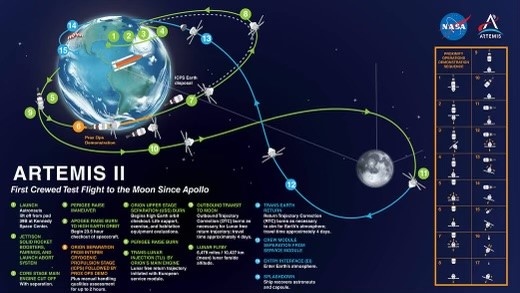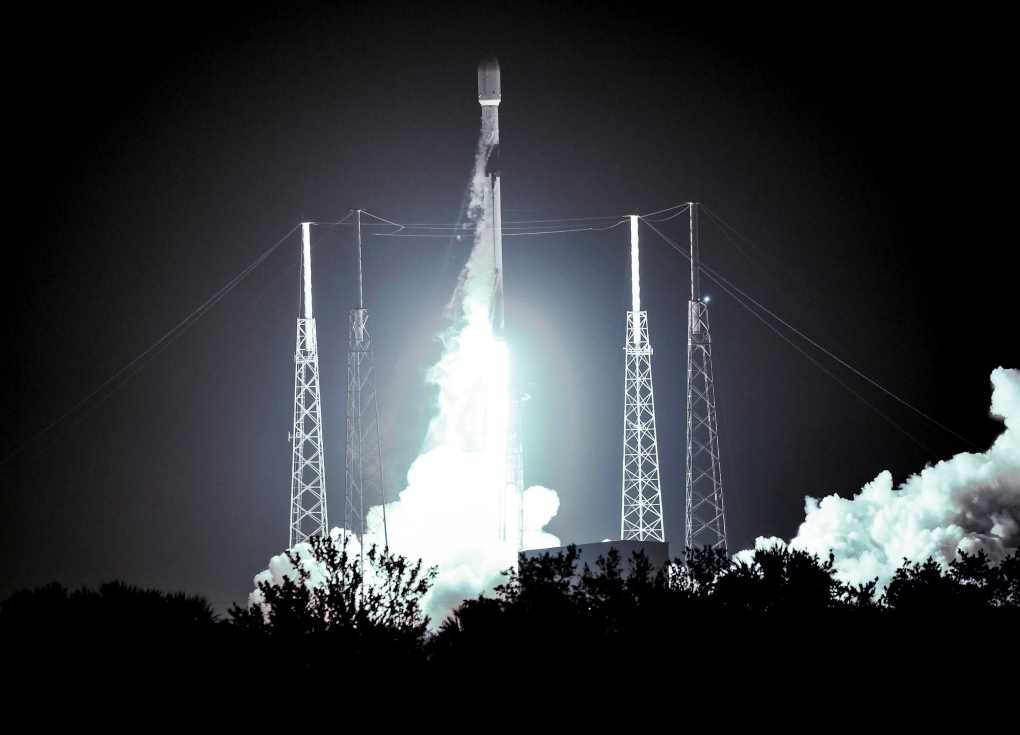Payette: Astronaut training ahead of Artemis II and potentially game-changing SpaceX rocket
Aretemis II is set for launch in November, 2024, and it will carry a crew of four to go on a test flight that will take them once around the moon and back.
Former astronaut Julie Payette explained to CTV News that the process to be chosen to get into the program is not easy.
"The odds are not really in your favour because there are a lot of applicants but just a few positions," she said.
- * Watch the full interview with CTV News Montreal anchor Mutsumi Takahashi above.
Canadian astronaut Jeremy Hanson will be the sole Canadian on board the four-person Artemis II mission. Hanson is the sole member of the crew who will be on his rookie flight after working at NASA for more than 15 years.
"He's held many senior positions, so he knows exactly the ropes of how to be an astronaut," said Payette.
The four crew members will be undergoing mission-specific training, Payette said.
"It is all geared to this particular mission," she said. "This mission is completely new. No one has ever flown it before."
 The Artemis II mission will involve doing a lap around the moon and back. SOURCE: NASA
The Artemis II mission will involve doing a lap around the moon and back. SOURCE: NASA
Artemis II is a new vehicle, Payette said, and the crew will be onboard to test the ship. The more complex mission and landing will come later.
SpaceX staff are waiting to see if they will be permitted to launch its enormous 120-metre rocket.
"It's completely revolutionary," said Payette. "The way SpaceX does an orbital flight is it sends the rocket and then recovers the rocket, and the entire second stage is actually the lander which will also come back on earth.
"Contrary to the way we've done a moon landing in the past where we have a staging in orbit and then transition to the moon and then a lander detached, this one is all in one. If that works, and it's a real challenge, then it will change the way we look at transit to the moon and then eventually transit to another planet."
 A SpaceX Falcon 9 rocket lifts off from Cape Canaveral, Fla., Thursday night, April 6, 2023. The rocket is carrying the Intelsat 40e communications satellite and NASA's Tropospheric Emissions Monitoring of Pollution instrument, or TEMPO. (Craig Bailey/Florida Today via AP)
A SpaceX Falcon 9 rocket lifts off from Cape Canaveral, Fla., Thursday night, April 6, 2023. The rocket is carrying the Intelsat 40e communications satellite and NASA's Tropospheric Emissions Monitoring of Pollution instrument, or TEMPO. (Craig Bailey/Florida Today via AP)
CTVNews.ca Top Stories

BREAKING 'Canadians deserve a real choice': Justin Trudeau resigning, prorogues Parliament
Prime Minister Justin Trudeau is stepping down as Liberal leader, and is proroguing Parliament as the Liberal Party of Canada embarks on the journey to replace him.
WATCH LIVE Justin Trudeau resigns as Liberal leader: Follow live updates
Prime Minister Justin Trudeau has stepped down as Liberal leader. Follow along for live updates from CTVNews.ca.
'Together, what a great nation it would be': Donald Trump, Elon Musk react to Justin Trudeau's resignation
Amid news of Prime Minister Justin Trudeau's resignation as leader of the Liberal party on Monday morning, reactions from prominent figures began piling in.
Justin Trudeau is resigning, what will be his legacy? A look back at key political eras
In a seismic political move, Justin Trudeau has announced his intention to step down as leader of the Liberal Party of Canada and prime minister, once his successor is named. This decision comes after more than nine years in the country's top job and nearly 12 years at the helm of his party.
Justin Trudeau resignation: Here's what he said in Ottawa today
Prime Minister Justin Trudeau delivered a speech about his political future Monday morning outside Rideau Cottage in Ottawa. Here's the message he delivered to Canadians.
Alberta government signs new oil and gas agreement with Enbridge
The Alberta government has signed an agreement with Enbridge that Premier Danielle Smith says will increase exports of the province's heavy oil to the United States.
Judge condemns murder trial delay, asks lawyers to 'turn around' and look at the public 'we serve'
A Saskatoon murder trial opened on Monday with the judge sharply criticizing the time it’s taken to get to trial.
Doug Ford snaps back at Donald Trump's Canada taunts with offer to 'buy Alaska'
Ontario Premier Doug Ford has snapped back at Donald Trump’s frequent taunts about treating Canada as a U.S. state with a counterproposal: buying Alaska.
Canadian alleged drug lord Ryan Wedding still has access to 'network of hitmen': U.S. prosecutors
U.S. prosecutors are seeking additional protections to keep the identities of confidential informants and co-operating witnesses hidden in the case against Ryan James Wedding, as the search continues for the Canadian ex-Olympian and alleged drug lord.

























